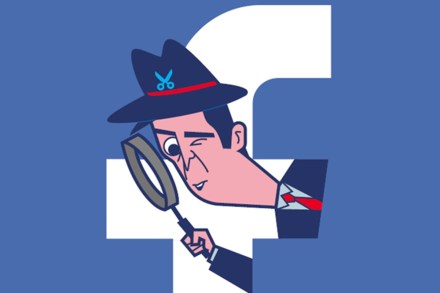In the past, when Indian politicians have tried to hold a Twitter or a WhatsApp accountable for what is posted or circulated through them, the normal reply has been that they are just platforms and that, in the case of WhatsApp, they cannot even read the messages that are posted; giving in to the government’s demand of helping trace messages, WhatsApp has said, violates privacy concerns. That view has, however, taken a beating recently with both Australia and now the UK deciding to hold social media bosses responsible if offensive content on these platforms is not removed at the earliest. While this is not an outright assault on social media—social media will get a certain time to remove posts which will be identified by the government/authorities—this is likely to be the first step. Indeed, newspaper reports suggest the UK regulations were drawn up after consultations with social media entrepreneurs like Facebook’s Mark Zuckerberg. Interestingly, some weeks ago, Zuckerberg surprised many when he explicitly called for government regulation on content; while this could be a tactic to ensure the government uses light regulation on social media, it is nonetheless a change in Facebook’s stance so far.
Indeed, with Facebook pulling down pages associated with the Congress before the Indian elections, and with Twitter blocking accounts, this is a clear acknowledgment that they are not just platforms or the public square, so to speak, where anyone is free to say what they want. Indeed, while WhatsApp continues to resist the suggestion that it help the government trace certain posts—after there are court-issued orders—it has already made some moves to take care of these concerns. In the first step, it limited the number of persons to whom a message could be forwarded and, now, it is working on a solution that will allow group administrators to simply block messages that are ‘frequently forwarded’; this will probably prevent a lot of jokes from being circulated, but it will also stop fake news from being circulated. To be sure, a user can download the message and, once that is done, it is no longer ‘frequently forwarded’, and so can be circulated. What such moves do, though, is slow the pace/frequency of forwarding messages.
It can be argued that the government is treading into areas like privacy, but such is the speed at which social media circulates news/views, the government needs to take some action—within a day of the New Zealand white supremacist attack on a mosque that left over 50 dead, users had uploaded the video 1.5 million times and Facebook’s automatic detection blocked 1.2 million. Interestingly, in the context of governments trying to hold social media accountable for what is carried on them, and the attack on them for promoting fake news, Zuckerberg is now talking of partnering with traditional media for giving users high quality news. In an interview posted on his Facebook page, Zuckerberg said he was exploring paying publishers for their content; while it is not clear how the payment would be made, it is a big change for Facebook whose model was essentially supplanting traditional media as a source of news. A few days ago, interestingly, some of India’s leading newspapers published an advertisement slamming social media for its sensationalisation—“if we don’t have the facts”, it said, “we don’t print the news”. Where this is all headed is unclear, but when social media has the kind of power that it has, it has to demonstrate that it has the power to control it; in the euphoria over what social media promised, few dared to ask questions, but that power shift has taken place. And if social media doesn’t fix the problems associated with it, as politicians across the world have made clear, they will have no option but to step in and do the needful.
